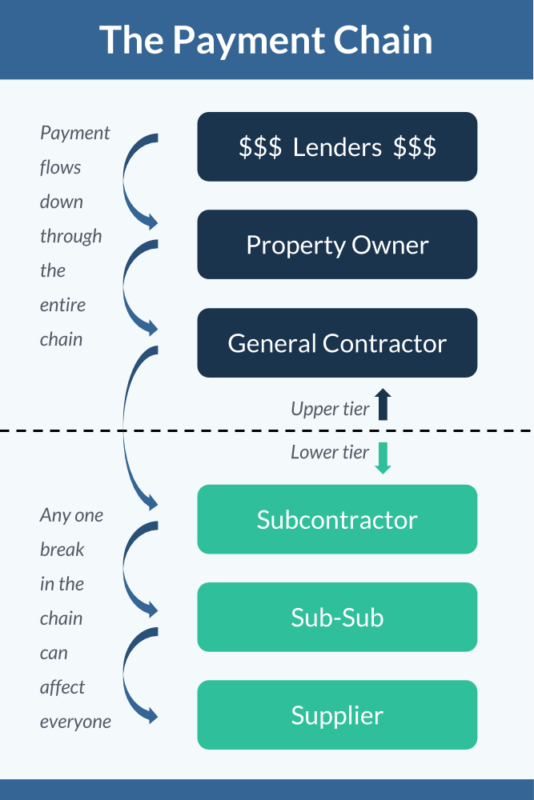Construction Manager vs General Contractor… What are the similarities between these project management entities? What are the differences? Which should you consider using for your next project if you are an asset owner?
If these are questions that you are asking yourself, you are certainly not alone.
Long story short, Construction Managers and General Contractors fulfill similar roles and duties on large-scale private or public sector projects. Both entities are typically seen as the “Head Contractor” or the primary facilitator of construction activities when hired onto a project by an asset owner.
However, there are some key nuances that differentiate these two entities. Read on to determine which you should be looking to hire depending on the scope of your next project!
Table of Contents
What is a Construction Manager?
What is a General Contractor?
Construction Manager vs General Contractor: The Breakdown
Owner Relationship
Payment Structure
Organizational Structure
Work Duties/Responsibilities
Benefits to Project/Asset Owners
Conclusion
Credential Management
Site Access Management
Detailed Reporting
What is a Construction Manager?
Construction Managers (or Construction Management firms) are professional service providers that act as an intermediary between project/asset owners and the construction contractors that perform work on the project. Construction Managers (CMs) are responsible for managing everything from the project’s schedule and cost all the way down to the day-to-day function of each subcontractor on the site.
Additional construction management responsibilities include:
- Quality assurance
- Ensuring site safety and regulatory compliance
- Project management
- Reporting progress to the project/asset owner
The Construction Manager is responsible for representing the owner’s interests and providing direct project oversight. Construction Managers are also accountable for hitting target project completion and target budget. This can be negotiated under any of the common construction contract types, be that fixed-price, cost-plus, or a time and materials contract.
What is a General Contractor?
A general contractor is much like a Construction Manager in the sense that act as an intermediary between the project/asset owner and the other contractors that are completing work on the project. In doing so, the General Contractor is hired by and is entering a direct or prime contract with the project owner.
Under this definition, construction firms that specialize in certain work (ex. Concrete) might typically classify themselves as subcontractors, whereby they are hired by a General Contractor to contribute to a commercial project. However, this same concrete company might, under some instances, act as a General Contractor if the entire scope of project work is concrete related, and they are hired directly by the asset owner.
Much like the Construction Manager, General Contractors are also responsible for ensuring quality, promoting site safety, adhering to regulation, project management, and providing detailed reporting to the owner. General Contractors can also enter several different contract formats, such as: fixed-price, cost-plus, or a time and materials.
Learn More: Construction Bids: How to Win More as a General Contractor
Construction Manager vs General Contractor: The Breakdown
Without further ado, here is the comparison: Construction Manager vs General Contractor.
Owner Relationship
Construction Managers and General Contractors have some distinct differences in the ways that they communicate and interact with the project or asset owner. Find out more below.
| Construction Manager | General Contractor |
|
|
Payment Structure
Managing and organizing payment for all project stakeholders is a key component of Construction Manager and General Contractor duties, however, there are some key differences to note.
| Construction Manager | General Contractor |
|
|
Here is how the payment chain flows under the general contractor model:

Source: Levelset
Organizational Structure
Construction Managers are more office-based and corporate in nature, whereas General Contractors tend to be much larger organizations with taller organizational hierarchies. Find out more here.
| Construction Manager | General Contractor |
|
|
Work Duties/Responsibilities
The day-to-day operations of Construction Managers and General Contractors vary quite substantially. Find out more below.
| Construction Manager | General Contractor |
|
|
Benefits to Project/Asset Owners
There are clearly some distinct differences between these two (often confused) entities. Below is a brief summary of some of the key benefits of each to interested project/asset owners.
| Construction Managers | General Contractors |
|
|
If you are the project/asset owner for a large construction project, you need to implement either a Construction Manager or a General Contractor (even both). Hopefully, this breakdown will provide the necessary insights to make an informed decision.
Conclusion
Are you an asset owner, Construction Manager, or General Contractor? Are you looking for innovative technologies to enhance the productivity of your projects, improve safety, and drive margins? myComply is the solution that you have been looking for.
Here is how it works:
Credential Management
myComply makes it so that General Contractors and Construction Managers can issue certification and qualification requirements to every subcontractor that is scheduled for work on their project. From there, every worker for every subcontractor must upload necessary certifications (including expiration dates) to the myComply platform. This ensures that all workers on your project site are qualified to be performing their work and allows you to mitigate the risk of non-compliance related fines.
![]()
Site Access Management
Construction sites are chaotic. As a General Contractor or Construction Manager, you are responsible for overseeing the movement of anywhere from dozens to hundreds (or even thousands) of workers on a day-to-day basis. Ensuring that only certified/approved workers enter your sites can be impossible. myComply’s Smart Badges and Smart Bricks use near-field communications (NFC) and Bluetooth technologies to scan each worker as they enter the site, so you always know who is on your site, and when.
Detailed Reporting
With certification requirements and access control solutions implemented on your project site, you naturally unlock a wealth of data, and myComply makes it easy to access and leverage that data.
Access on-demand reports to showcase:
- All worker certifications and project compliance data
- Worker detail reports to showcase demographic data for banks, owners, and other stakeholders
- Timesheet data to track worker movements and prevent labor inflation
- Proof of vaccination (where applicable)
- Local Law 196 reports (New York only)
If you are interested in finding out more about myComply, then check out our Projects Pro solution for Owners, Construction Managers, and General Contractors, or book a demo with one of our product experts.




Thank you for explaining how a construction manager is someone who provides direct project oversight. My husband and I have been wondering if we should hire a general contractor or a construction manager. We’ll be sure to do some more in depth research, but it seems like a construction manager is someone who will more closely fit what we need for our project.
It was good to know that you can always view the general contractor’s previous projects, so that you can ensure that they have an extensive experience working with a similar procedure. I’m willing to pay anyone who can build me a fence on my backyard, because the deers are always ruining my plants. Gardening is something that I do every day to release stress from work, so it’s very unfortunate to find out that my plants have been destroyed. Thank you for the information that you provided, I’ll make sure to find a reliable general contractor in town who has a previous experience in fencing services.